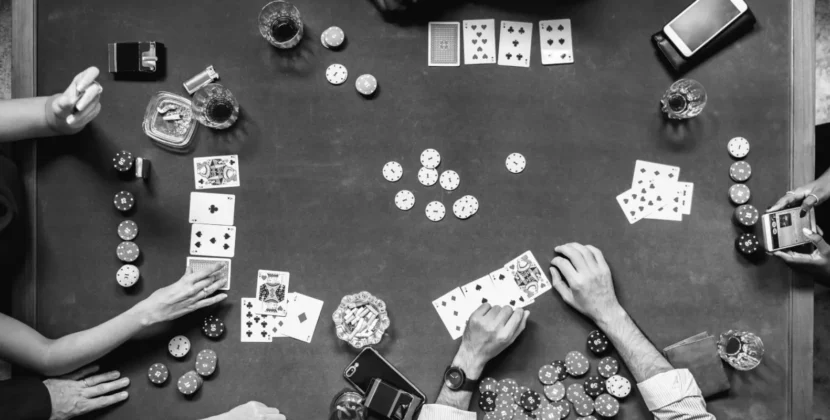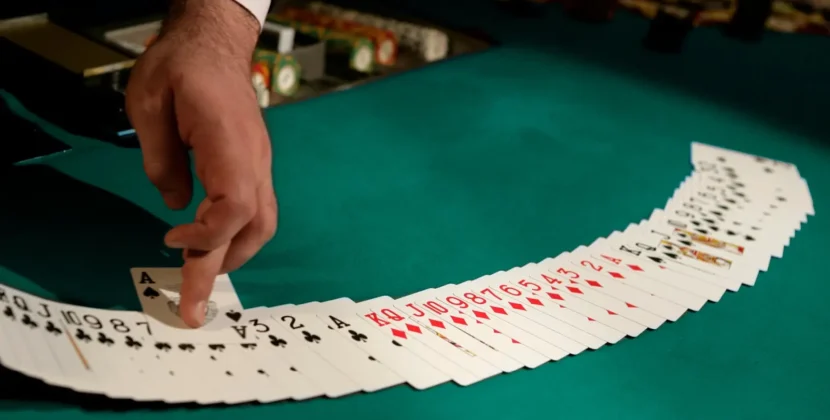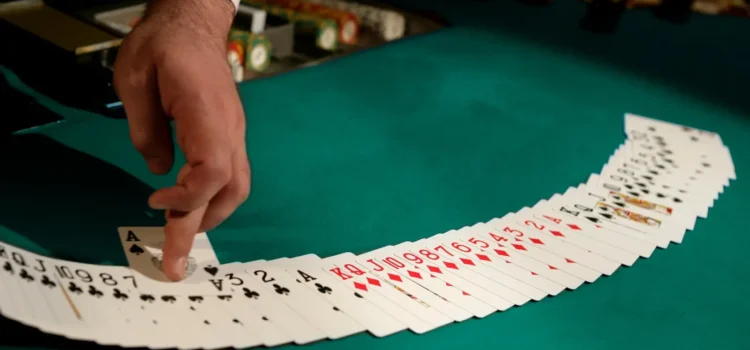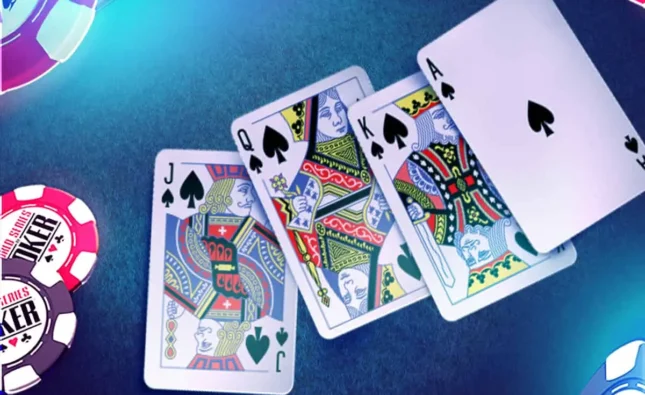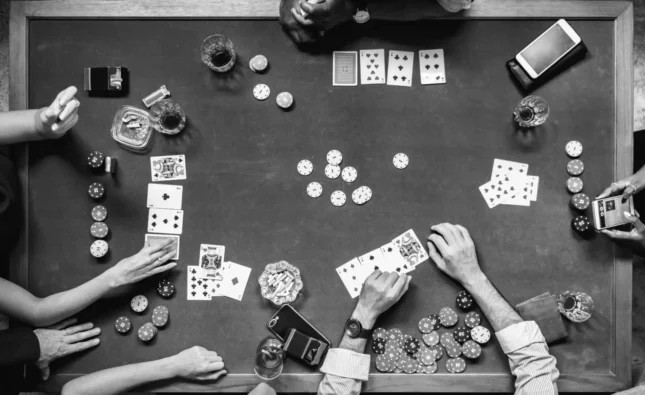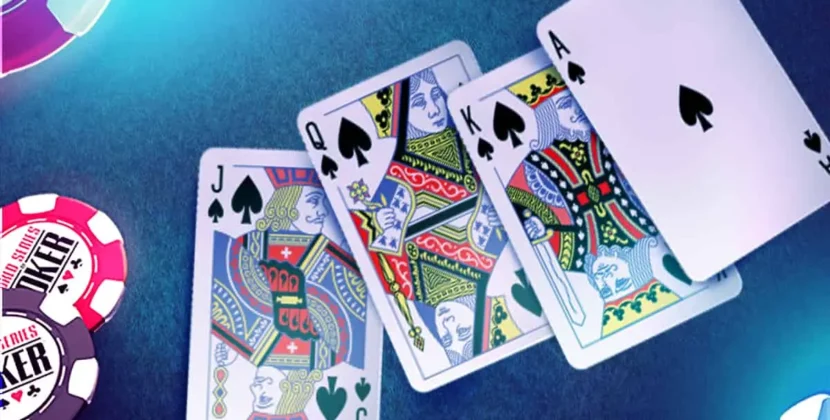
Share:
Poker is a game of strategy, skill, and psychology, and for many, it’s a passion that offers excitement, challenge, and social connection. But when it comes to playing poker, it’s important to remember that the game should always be about enjoyment, whether you’re sitting at a home game with friends or competing in a major tournament.
In this guide, we’ll explore 13 invaluable tips that will help you not only improve your poker skills but also ensure that you have fun while playing. These practical tips cover everything from how to manage expectations and bankroll to how to enjoy the atmosphere at the table and build a rapport with other players. By following these tips, you can bring a sense of enjoyment and balance back to your poker experience.
1. Prepare Yourself for the Unpredictability of Poker
Poker, like many other games, is full of uncertainty. No matter how well you play, there will be times when things don’t go your way. It’s important to understand this inherent randomness and not expect to win every time you sit down at the table. Even if you’re playing with top-tier strategies, there’s no guarantee that the cards will fall in your favor. In fact, skill only becomes the deciding factor in the long run.
When you sit down to play, it’s crucial to plan for losses, especially when you’re setting a budget for your session. For example, if you bring $200 to the game, mentally prepare yourself for the possibility that you might lose that amount. View it as the cost of having a fun experience. If you win, that’s just a bonus. But if you lose, don’t dwell on it. Stay relaxed and know that this is all part of the game.
2. Keep Things Light and Fun at the Table
Poker should be an enjoyable social activity, not a high-stakes pressure cooker. To foster a fun atmosphere at the table, engage with your fellow players—smile, tell a joke, or chat casually about topics unrelated to the game. There’s no need to scowl or stare down your opponents; instead, focus on creating a laid-back environment where everyone feels welcome.
If you’re playing with close friends, feel free to joke around and heckle, but avoid crossing the line into belittling anyone. Remember, poker is a social game, and the goal is to have fun, not to make others feel uncomfortable. By maintaining a positive attitude and not taking the game too seriously, you’ll enjoy your time much more, regardless of the outcome.
3. Avoid the Trap of Bad Beat Stories
Every poker player has suffered a bad beat at some point—whether it’s losing a big pot after getting your opponent to go all-in, only for them to catch a lucky card on the river. While it can be frustrating, poker players tend to be selfish by nature. Everyone at the table is just waiting to tell their own version of a bad beat story, and no one will pay much attention to yours.
Instead of venting about your misfortune, change the subject or simply observe the action. Bad beat stories rarely help anyone, and they can quickly bring the mood down. Keep things light and move on from the loss. There’s always another hand to be played, and complaining won’t improve your chances.
4. Know the Rules and Be Mindful of Timing
Nothing is more frustrating than having to wait while a player slows down the game by not knowing when it’s their turn to act. To avoid being that player, make sure you understand the rules of the game and be attentive to the flow of play. If you’re new to poker, there are plenty of books and resources to help you learn, such as Phil Hellmuth’s Play Poker Like the Pros, which covers everything from basic strategies to more advanced concepts.
Being aware of the game’s pace and taking your turn in a timely manner shows respect for your fellow players. While it’s understandable that beginners may make mistakes, taking the time to learn the rules and improve your game will make you a more considerate and efficient player.
5. Win With Grace and Generosity
If you win a big pot or a tournament, remember to be gracious and humble about it. A little generosity goes a long way in poker. One way to show appreciation for the other players is by buying a round of drinks after the game, especially if you’ve been victorious. Not only does this show that you’re a good sport, but it also helps to create a friendly, celebratory atmosphere.
Winning poker doesn’t just mean taking home chips; it’s also about building camaraderie with your fellow players. This gesture will make everyone feel good, even if they didn’t win. And who knows, you may find that your generosity comes back to you in future games.
6. Lose Graciously and Stay Positive
Losses are an inevitable part of poker, but how you handle them is what defines you as a player. If you lose a big pot or fall out of a tournament, don’t sulk or get upset. Instead, take it in stride and remain positive. Poker is about learning from every hand, whether you win or lose.
If you can afford it, consider buying a round of drinks for the table, even after a loss. It shows sportsmanship and helps maintain a friendly vibe. Remember, poker is supposed to be fun, and part of that fun comes from sharing the experience, whether you’re on a winning streak or enduring a tough night.
7. Diversify Your Poker Skills
Most poker players are familiar with Texas Hold’em, but poker offers a wide range of games to enjoy. Expand your skill set by learning new games such as Omaha, Seven-Card Stud, or even more unconventional variations like Pineapple.
Pineapple is a fun and fast-paced game that combines elements of Omaha and Hold’em. In Pineapple, each player is dealt three hole cards, and they must discard one after the first betting round. This leads to more dynamic hand combinations and strategies, making it a refreshing alternative for home games. By diversifying your poker repertoire, you’ll keep the game exciting and challenge yourself to master new strategies.
8. Engage with the Dealer and Tip Well
Poker dealers are often the unsung heroes of the game. They’re responsible for managing the flow of play, keeping things on track, and ensuring the integrity of the game. Taking the time to chat with the dealer can be a great way to lighten the mood, and you may even learn something interesting about the game or the casino world.
Don’t forget to tip your dealer when you win a significant pot. In most poker rooms, a standard tip is 1-2% of the pot. Tipping shows appreciation for the dealer’s hard work and helps create a more pleasant and professional environment at the table.
9. Make Poker a Social Activity
Poker doesn’t have to be limited to male-only gatherings. Invite women to join your poker nights and enjoy a more diverse and engaging experience. Women are just as capable at poker as men, and a night of cards, drinks, and good conversation can make for a memorable and enjoyable evening.
Additionally, including women in your poker sessions might open up opportunities for interesting dynamics and unique perspectives on the game. Plus, if you end up going bust during the game, you’ll at least have some good company to enjoy the rest of your evening with.
10. Avoid Gimmicks and Distractions
Poker is a game that requires focus and attention to detail. Wearing sunglasses or trying to use wardrobe gimmicks to intimidate others will only draw attention to you in a negative way. At the poker table, your actions should speak louder than your appearance.
Instead of trying to look like a professional player or attempt to read people based on their attire, concentrate on your strategy and behavior. Good poker players don’t rely on distractions or props; they rely on their ability to read the game, calculate odds, and make the right decisions.
11. Handle Setbacks With Dignity
Poker is a metaphor for life. It teaches you how to handle both victory and defeat. If you encounter a bad beat or lose a significant pot, take it like a man (or woman) and move on. Every setback is an opportunity to learn and improve your skills.
Rather than letting a loss ruin your night, focus on what you can learn from the experience. A bad beat is just one hand in a much larger game. Whether you win or lose, the goal is to enjoy the process and keep improving your play over time.
12. Master Chip Handling
Getting comfortable with poker chips is an important skill that often goes overlooked. Just like a basketball player practices dribbling the ball, you should practice handling poker chips. Take a few chips with you and practice flipping, shuffling, or twirling them.
This may sound trivial, but the more comfortable you are with chips, the more natural your play will feel. You’ll spend less time worrying about how to stack or handle chips and more time focusing on your game. Plus, learning a few chip tricks can add an element of fun to your poker night.
13. Embrace the Chaos of Poker with Bold Moves
Sometimes, the best way to make a statement at the poker table is by making an unexpected play. One of the most exhilarating moments in poker is winning a hand with 7-2, the worst starting hand in Texas Hold’em. Known as “the hammer,” this play may seem like a long shot, but it’s a bold move that demonstrates your fearlessness and confidence.
Whether you win or lose, you’ve made a memorable impression on your opponents. By embracing the chaotic nature of poker and taking risks, you’ll keep the game exciting and ensure that everyone knows you came to play.
Conclusion: Keep Poker Fun and Enjoy the Ride
Poker is a thrilling game, but it’s important to remember that it’s just a game. Whether you’re playing for big money or simply for fun, the goal is to enjoy the experience and make lasting memories. By following these 13 tips, you’ll not only improve your poker skills but also foster a positive and fun environment at the table. So, next time you sit down for a game of poker, keep these tips in mind, relax, and have fun—because that’s what poker is all about.

